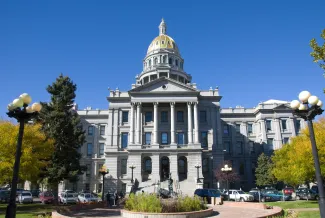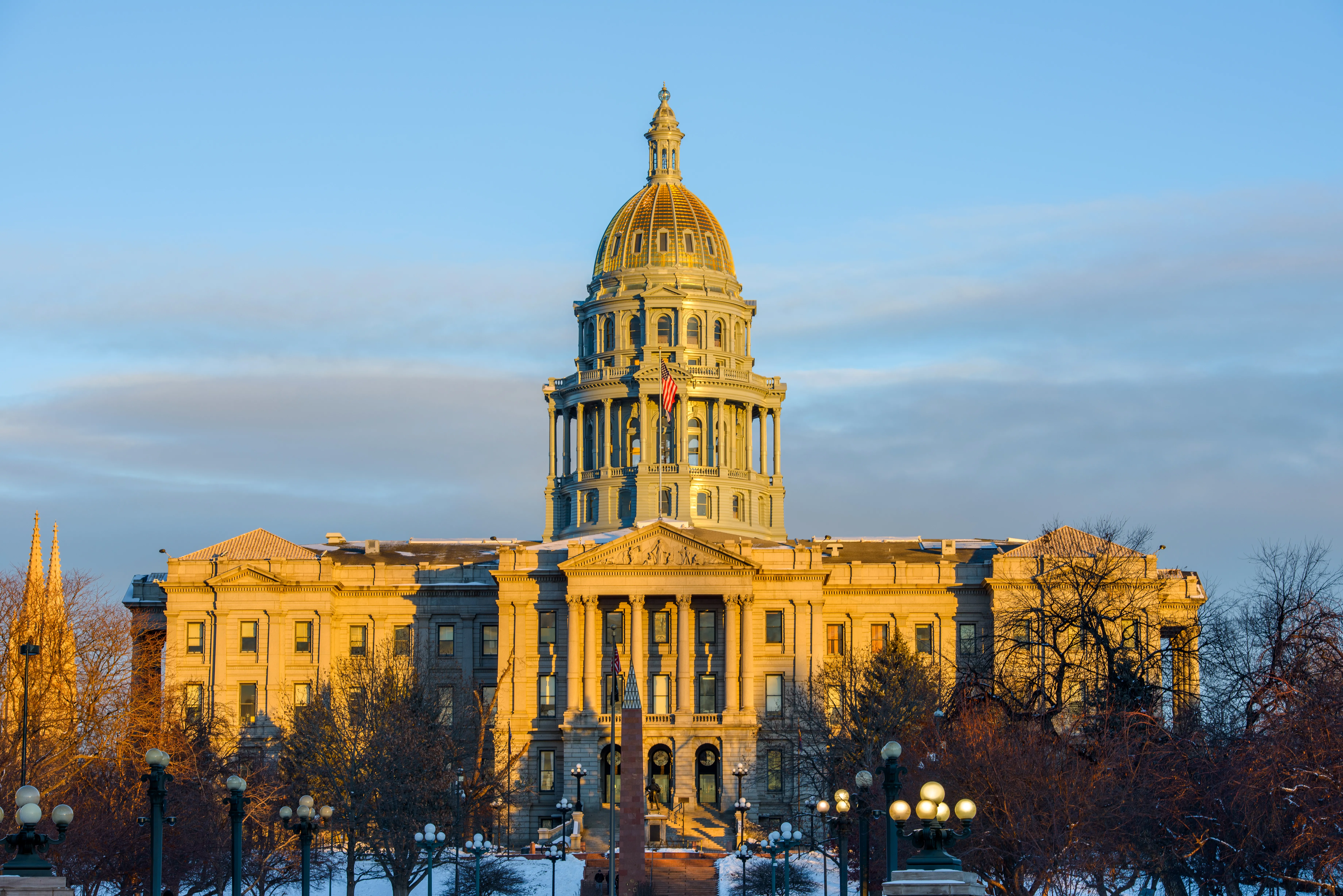
Colorado lawmakers eye ways to reduce pollution in vulnerable communities
Click play to listen to this article.
(Colorado News Connection) In 2021, Colorado lawmakers took a first step toward addressing decades of toxic pollution disproportionately impacting low-income neighborhoods and communities of color by creating an Environmental Justice Action Task Force. They must now decide whether to act on that task force's recommendations in House Bill 24-1338.
Ean Tafoya, Environmental Justice Action Task Force co-chair, said with a projected state budget shortfall of at least $170 million, the future of the measure is uncertain.

Colorado Capitol Building Denver © iStock - kuosumo
"With the looming budget cuts from our economic forecast, we are very concerned that environmental justice legislation like this is going to be on the chopping block," Tafoya said. "And so, we really need people to raise their voices and say that these issues are incredibly important."
HB 24-1338 calls for new research and documentation, known as environmental equity and cumulative impact analyses, in the state's most polluted ZIP codes. Tafoya said the data can help lawmakers make better policy decisions on whether new industries can be located near at-risk communities, and enforce rules for polluters already operating in those neighborhoods.
Tafoya believes all Coloradans have a human right to breathe clean air, drink clean water and plant their gardens in clean soil. But he said decades of policies that prioritized polluters over people have led to a host of negative health outcomes, including cancers and premature death.
As Tafoya described it, "Moms waking in the middle of the night with their children gasping for air from asthma attacks. This also happens with elders who have COPD. These are the realities for the people who live closest to toxins, and we have a duty and a responsibility to protect them."
He added lawmakers and representatives from industrial polluters that participated in the task force's work recognize there have been situations in the past that they have gotten wrong, and they would like to see a better future for everyone.
"I think we are in alignment - government, industry and community - about a path forward for environmental justice. HB 24-1338 is not controversial, it's something that we all agree we need to move forward on," he said.















